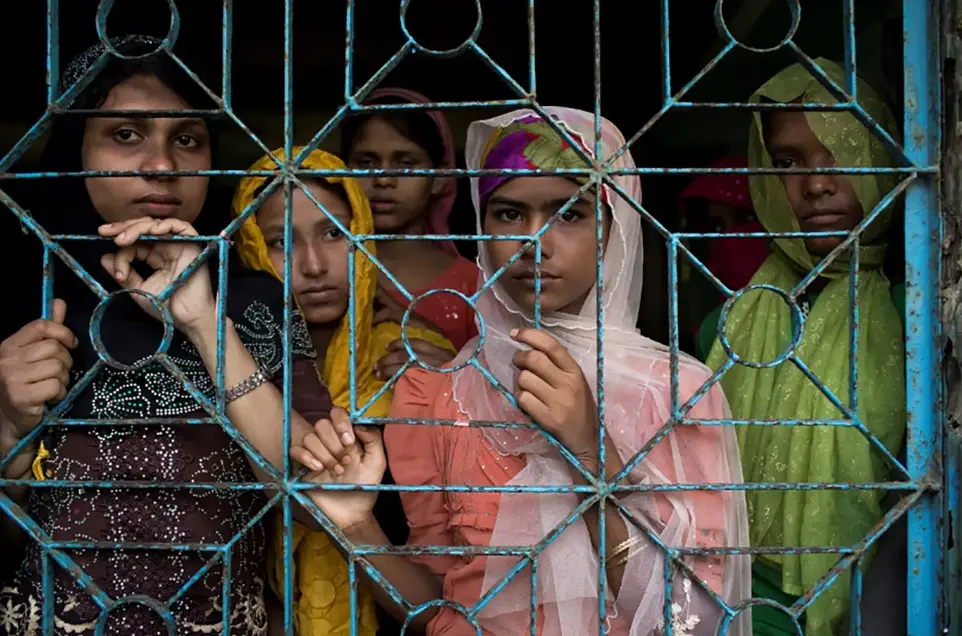
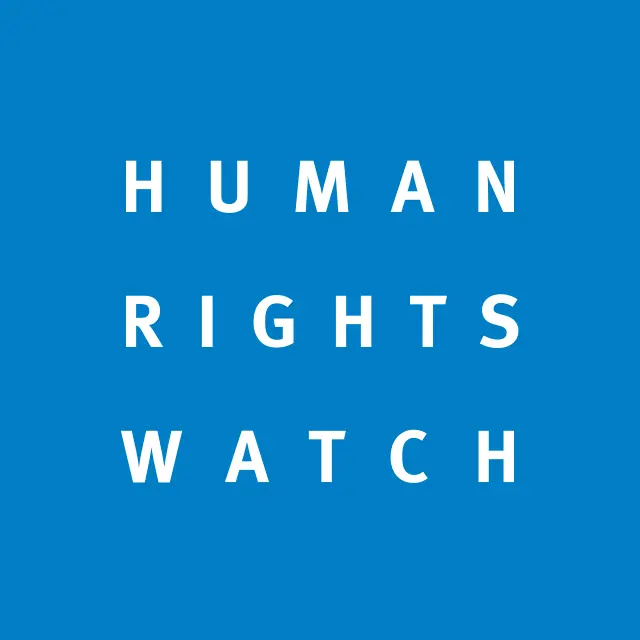
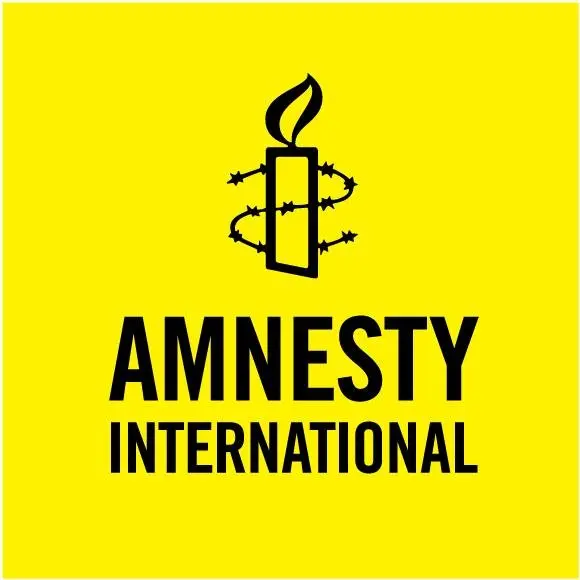
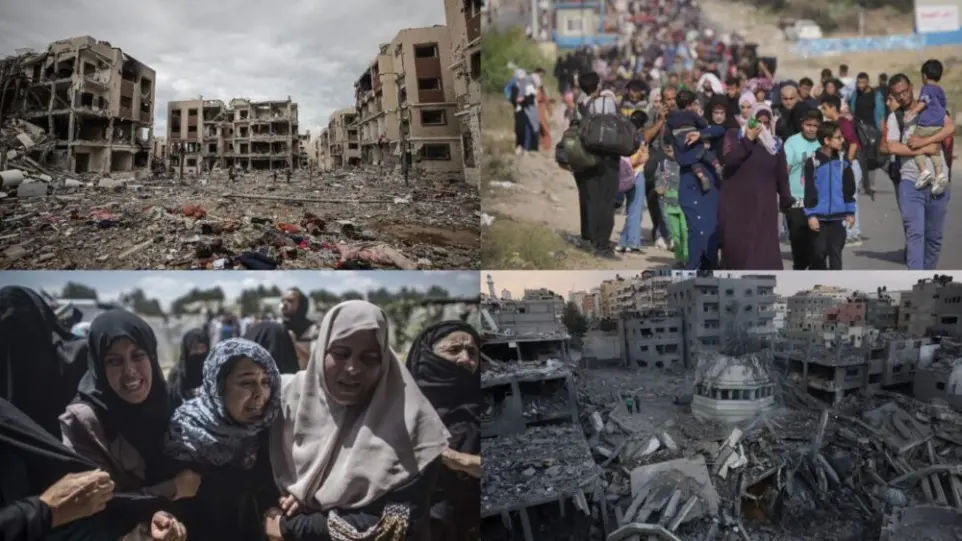
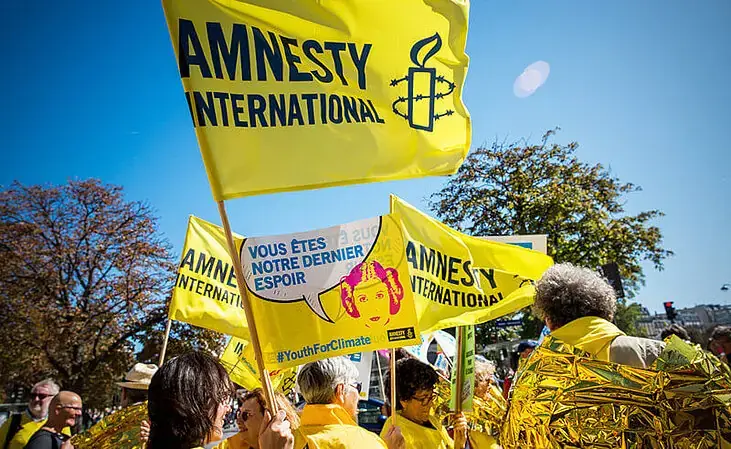

Amnesty International vs. Human Rights Watch: Differences in the Defense of Human Rights
Welcome to a space where we will explore in depth the state of human rights around the world. In our main article, "Amnesty International vs. Human Rights Watch: Differences in the Defense of Human Rights," we will analyze the varied perspectives and tactics of these two leading organizations in the promotion of human rights. Prepare for a thorough analysis that will invite you to reflect and question the different visions in this essential fight. Don't miss it!
Introduction
The defense of human rights at the global level has acquired increasing relevance in recent decades. With the growing awareness of the need to safeguard the fundamental rights of all people, various international organizations have emerged with the aim of promoting justice, equality, and the protection of human rights around the world.
In an environment characterized by armed conflicts, humanitarian crises, and acts of discrimination, the fight for human rights has become essential to guarantee the respect and dignity of every individual, regardless of their origin, gender, sexual orientation, or any other characteristic.
In this context, organizations such as Amnesty International and Human Rights Watch have played a crucial role, dedicating themselves to investigating, reporting, and advocating for respect for human rights in various parts of the world.
International organizations dedicated to defending human rights are fundamental to promoting justice and accountability at the global level. Their work ranges from gathering evidence of human rights abuses and violations to pressuring governments and state actors to respect their commitments in this area.
These organizations also play a crucial role in raising public awareness, mobilizing civil society, and raising awareness of the injustices occurring in various parts of the world. Furthermore, their advocacy work is key to the adoption of effective measures to protect human rights at the national and international levels.
In an increasingly interconnected world, where human rights violations can cross borders, the work of international organizations becomes even more relevant, as their capacity for action allows them to address problems that transcend geographical limitations.
Amnesty International and Human Rights Watch, despite sharing the goal of protecting human rights, adopt somewhat different approaches in their work to defend and promote fundamental rights. Amnesty International has focused on mobilizing large numbers of activists and human rights defenders, as well as putting pressure on governments through awareness-raising campaigns, while Human Rights Watch stands out for its focus on thorough investigation and the publication of detailed reports on human rights abuses and violations in different countries.
This divergence in approaches does not imply that one organization is more effective than the other, but rather reflects the diversity of tactics that can be used in the defense of human rights. While Amnesty International seeks to engage civil society through awareness-raising campaigns and public pressure, Human Rights Watch focuses on rigorous documentation of specific cases and the presentation of solid evidence to national and international bodies.
Both organizations have achieved a significant impact on the protection of human rights globally, demonstrating that, although their approaches may differ, the ultimate goal of ensuring respect for fundamental rights is shared and prioritized.
Amnesty International: Focus and Activities
Amnesty International is a non-governmental organization established in 1961 to investigate and prevent human rights violations. Its mission is to promote justice, equality, and freedom throughout the world, working to ensure respect for the rights found in the Universal Declaration of Human Rights.
Since its founding, Amnesty International has advocated for the release of prisoners of conscience, the abolition of the death penalty, and the eradication of torture, among other essential objectives in the protection of human rights. The organization has grown to become one of the most influential voices in the fight for human rights internationally, with branches and members in a wide variety of countries.
Amnesty International's focus on human rights defense is characterized by its extensive work documenting abuses, pressuring governments and non-state actors to respect fundamental rights, and mobilizing public opinion through awareness-raising campaigns and action. The organization focuses on issues such as freedom of expression, gender equality, the rights of migrants and refugees, international criminal justice, and the protection of human rights defenders. Amnesty International promotes the adoption and effective implementation of international human rights standards, as well as accountability for those who commit abuses.
Amnesty International has carried out numerous global campaigns and actions to denounce human rights violations and promote meaningful change. Its achievements include contributing to the creation of the International Criminal Court, the release of political prisoners, and mobilizing in defense of the rights of women and minorities.
The organization has been recognized with the Nobel Peace Prize for its tireless work in defense of human rights, and its work remains vital in the fight against injustice around the world. Amnesty International's approach focuses on documenting, denouncing, and mobilizing in defense of human rights, with the goal of achieving a more just and equal world for all people.
Amnesty International and Human Rights Watch, as two of the most prominent human rights organizations worldwide, are not exempt from criticism and controversy regarding their approaches and working methods. One of the most frequent criticisms of Amnesty International is its alleged lack of impartiality in addressing certain situations. Some critics argue that the organization has shown bias toward certain governments or groups, which has raised questions about the objectivity of its reports and statements. On the other hand, Human Rights Watch has been subject to criticism related to its funding, as it has received donations from individuals and entities with political or economic interests, raising questions about its independence and ability to address certain issues impartially.
Another point of controversy is the selection of cases each organization chooses to prioritize. Some analysts and activists have expressed concern about the alleged biased selection of cases by both organizations, which could reflect a certain partiality in the attention they provide to certain countries or situations, while neglecting others. This perception has led to debates about the ability of these organizations to equitably represent the diversity of human rights violations worldwide.
While Amnesty International and Human Rights Watch have played a crucial role in defending human rights globally, they have not been exempt from criticism and controversy regarding their approach, impartiality, funding, and case selection. These criticisms and controversies pose significant challenges for both organizations in their quest to maintain trust and credibility in their work defending human rights.
Human Rights Watch: Mission and Activities
Since its founding in 1978, Human Rights Watch (HRW) has played a pivotal role in advancing human rights globally. This non-governmental organization is dedicated to defending and promoting fundamental rights, conducting in-depth research, and advocating for meaningful changes in policies and practices that affect people around the world.
HRW's track record is characterized by its firm commitment to independence, impartiality, and objectivity in documenting human rights abuses and violations. Over the years, its work has expanded to include a variety of issues, from protecting the rights of women and minorities to monitoring armed conflicts and the situation of refugees.
HRW has established itself as one of the leading international human rights organizations, working tirelessly to expose injustices and pressure governments, institutions, and relevant actors to take concrete actions to address them.
HRW's strategy is based on thorough research and accurate documentation of human rights abuses and violations in different contexts and countries. It employs an evidence-based approach to produce truthful and reliable reports, which serve as a basis for promoting human rights at the national and international levels.
HRW is also dedicated to advocating for concrete changes in government policies and practices, as well as in the decisions of non-state actors that affect human rights. This advocacy seeks to have a significant impact on the protection and promotion of the fundamental rights of people around the world.
The organization is also committed to working closely with local and regional human rights defenders, recognizing their essential role in defending human rights in their particular contexts.
Human Rights Watch has carried out a series of significant actions at the international level, ranging from preparing detailed reports on specific violations to presenting clear recommendations to governments and international organizations. Its work has been essential in highlighting critical situations and lobbying for effective measures to address them.
HRW has also played a key role in promoting international treaties and agreements that seek to strengthen the protection of human rights globally. Its active participation in international forums and its advocacy work have contributed to raising awareness and mobilizing action to address significant human rights challenges.
Human Rights Watch has demonstrated a firm commitment to defending human rights globally, conducting exhaustive research, advocating for meaningful changes, and promoting accountability for those who violate the fundamental rights of people around the world.
Amnesty International and Human Rights Watch, two of the most prominent organizations defending human rights globally, have been the subject of criticism and controversy regarding their approaches and working methods. In the case of Amnesty International, it has been accused of an alleged lack of impartiality in the selection of issues it addresses, as well as of relying heavily on funding from Western governments for its campaigns. Human Rights Watch, for its part, has faced criticism for an approach that some consider biased toward certain regions, ignoring human rights violations in other areas of the world.
Furthermore, both organizations have been criticized for the veracity of their reports and the objectivity of their investigations. They have been criticized for presenting information that could be considered biased or for omitting important context in their allegations, which has generated debates about the credibility and reliability of their work. These criticisms and controversies highlight the complexity and sensitivity of international human rights work, as well as the need for constant review and improvement in the approaches and practices of these organizations.
It is essential to recognize that, while the methods of human rights organizations must be questioned and analyzed, these criticisms should not overshadow the positive impact they have had in raising awareness and combating fundamental rights violations around the world. Fostering constructive dialogue is essential so that these organizations can learn and adapt in their work, always prioritizing the well-being and protection of the rights of all people.
Comparison of Perspectives
Amnesty International and Human Rights Watch are two leading international organizations defending human rights globally. Although they share a common goal, their perspectives and methods differ significantly.
Amnesty International focuses on investigating, documenting, and publicizing human rights violations, using awareness-raising campaigns and lobbying governments and other entities. In contrast, Human Rights Watch focuses on producing comprehensive reports and actively defending human rights on the ground, working closely with local activists and affected communities. Despite these differences, both organizations are committed to promoting human rights worldwide.
It is essential to understand that these differences do not imply that one organization is more effective than the other, but rather reflect different strategies for achieving a shared goal: the protection of human rights.
The divergent perspectives of Amnesty International and Human Rights Watch have a considerable impact on the fight for human rights. While Amnesty International relies heavily on public awareness and global mobilization, Human Rights Watch focuses on direct pressure on those responsible for abuses through detailed investigations and the dissemination of reports.
Amnesty International's work has been crucial in raising global awareness and mobilizing around human rights issues, putting pressure on governments and others to act. Human Rights Watch, for its part, has achieved significant impact by exposing specific abuses and working in partnership with affected communities to promote change.
The two perspectives are complementary and contribute significantly to the defense and protection of human rights worldwide, demonstrating that there is no single effective strategy for addressing these global challenges.
The consequences of the divergent perspectives of Amnesty International and Human Rights Watch are felt globally, affecting public perceptions, government decision-making, and the international response to human rights violations.
The combination of Amnesty International's advocacy and mobilization work, along with the detailed and targeted approach of Human Rights Watch, has had a notable impact on the promotion of human rights globally. Both organizations have been instrumental in creating a culture of accountability and advocacy for human rights around the world, demonstrating that diverse approaches are enriching in the fight for a more just and equitable world for all.
Challenges and Opportunities
Amnesty International and Human Rights Watch face similar challenges in their mission to promote human rights globally. One of the main obstacles is the limited resources, both financial and human, to address the vast number of human rights violations occurring worldwide. Furthermore, both organizations must deal with hostile governments that try to hinder their work and restrict their access to certain areas or communities.
Another significant challenge is the need to maintain impartiality and objectivity in their work, especially in contexts of conflict or political tension. It is essential that their work be based on solid and reliable evidence, avoiding biases or external influences that could compromise their credibility.
Furthermore, coordination with other human rights organizations and managing strategic alliances also represent a challenge, as it is essential to preserve the independence and autonomy of each organization while seeking to maximize the impact of their collective actions.
Despite the challenges, Amnesty International and Human Rights Watch have numerous opportunities to collaborate and work together in the promotion and defense of human rights. Both organizations can exchange information and resources, allowing them to complement and strengthen their research and campaigns. This collaboration can result in greater visibility and pressure on those responsible for human rights violations.
Furthermore, cooperation in advocacy at the national and international levels can be an effective strategy for driving significant changes in policies and practices that affect human rights. Working together on emblematic cases or specific thematic campaigns can generate a stronger impact and amplify the voices of victims.
Another important opportunity lies in the exchange of good practices and lessons learned between both organizations, which can contribute to improving their approaches and strategies in defending human rights.
To achieve convergence of approaches, Amnesty International and Human Rights Watch could explore establishing formal coordination mechanisms, such as joint working groups or regular dialogue platforms. These spaces would allow them to align strategies, share contextual analyses, and define joint actions in crisis or emergency situations.
Furthermore, identifying complementary areas of expertise could facilitate more efficient distribution of resources and avoid duplication of work. For example, while one organization focuses on research and documentation, the other could focus on advocacy or strategic litigation.
Harmonizing criteria and methodologies in data collection and reporting would also help strengthen the credibility and consistency of their reporting, generating a stronger impact on the promotion of human rights globally.
Conclusions
Amnesty International and Human Rights Watch, despite their different methodologies in promoting human rights, have achieved a considerable impact worldwide. Both organizations have been instrumental in raising awareness and denouncing human rights violations in various parts of the world, highlighting the importance of diverse approaches in defending these fundamental rights.
It is crucial to recognize that the synergy between the approaches of Amnesty International and Human Rights Watch has made it possible to address a broader range of issues and situations of human rights abuses. While Amnesty International focuses on global mobilization and lobbying governments, Human Rights Watch is dedicated to conducting in-depth research and producing detailed reports that seek to influence international policies and decisions.
Ultimately, both organizations have demonstrated that, although their approaches differ, the ultimate goal is the same: to promote and protect human rights worldwide, which emphasizes the importance of collaboration and working together in defending these fundamental rights.
The impact of the distinct approaches of Amnesty International and Human Rights Watch is evident in the increased global visibility and awareness of human rights violations. Through their reports, campaigns, and advocacy efforts, these organizations have successfully mobilized the international community, putting pressure on governments and organizations to take action against human rights violations.
Furthermore, the work of Amnesty International and Human Rights Watch has been instrumental in the development of international regulations and protection mechanisms, which has strengthened the legal framework for human rights. The work of both organizations has been vital in highlighting specific issues, influencing public policies, and generating significant changes in the protection of human rights in various contexts.
In this context, the impact of the distinct approaches of Amnesty International and Human Rights Watch has been crucial to the promotion and defense of human rights globally, demonstrating that diverse strategies are an enriching component in the fight for justice and human dignity.
The future of human rights defense requires an integrative vision that recognizes the importance of diverse and complementary approaches, as represented by Amnesty International and Human Rights Watch. It is essential that human rights organizations, movements, and activists value the richness brought by the diversity of strategies and approaches, recognizing that each contributes essential elements to the protection of fundamental rights.
Furthermore, collaboration and networking among organizations with divergent approaches is essential to comprehensively addressing human rights violations globally. Complementary strategies, coordinated efforts, and the exchange of experiences will strengthen the defense of human rights and generate a more significant impact on the protection of people in vulnerable situations.
In this sense, the future of human rights defense presents itself as a challenge that demands an inclusive, integrative, and collaborative approach, where divergent approaches are valued as an enriching element in the fight for justice and human dignity at the global level.

 IHRO NEWS
IHRO NEWS